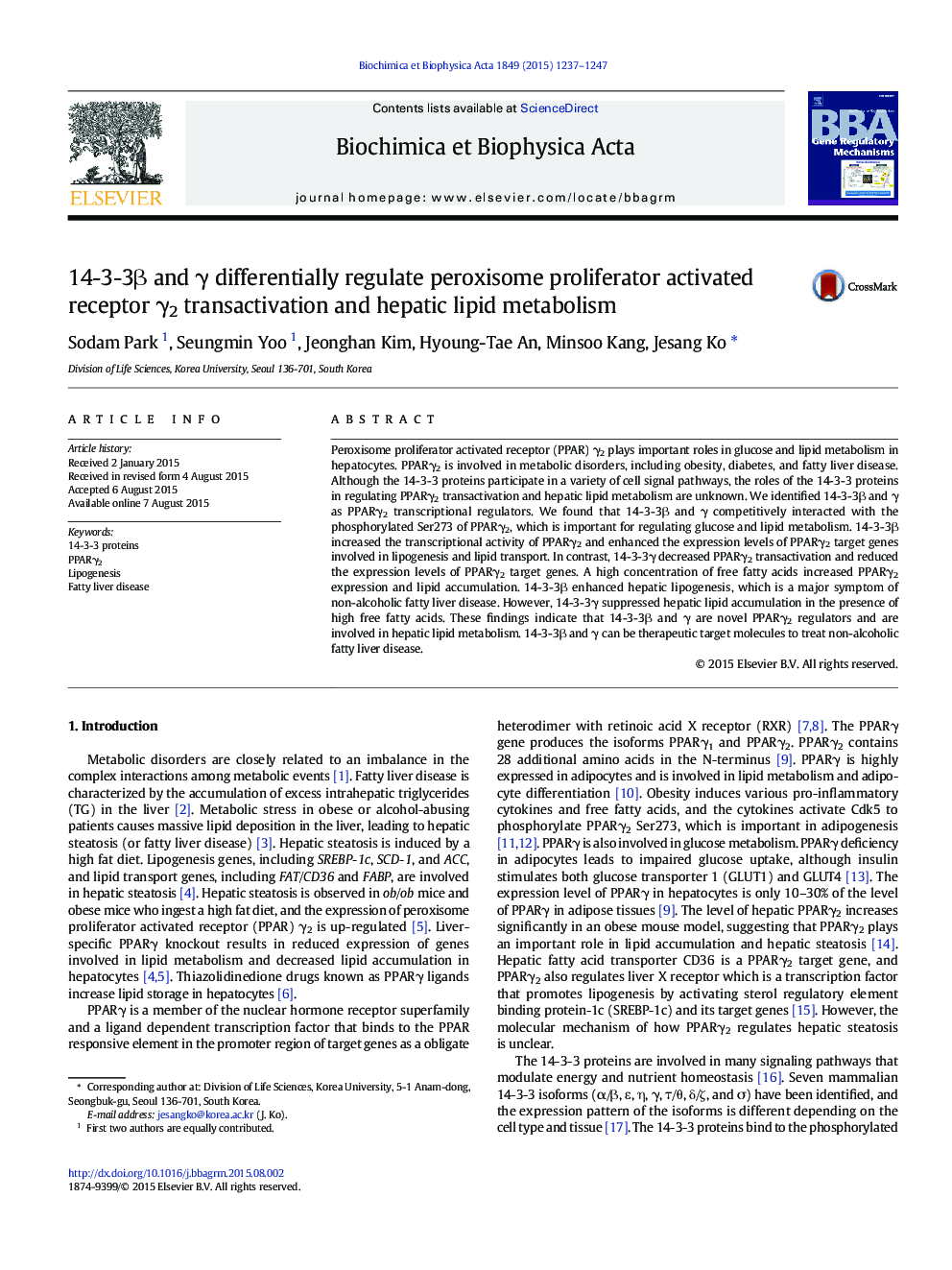| Article ID | Journal | Published Year | Pages | File Type |
|---|---|---|---|---|
| 1946376 | Biochimica et Biophysica Acta (BBA) - Gene Regulatory Mechanisms | 2015 | 11 Pages |
•14-3-3β and γ differentially regulate the transcriptional activity of PPARγ2.•14-3-3β and γ competitively bind to the Ser273 of PPARγ2.•14-3-3β and γ are involved in PPARγ2 target gene expression.•14-3-3β and γ differentially regulate lipid accumulation in hepatocytes.
Peroxisome proliferator activated receptor (PPAR) γ2 plays important roles in glucose and lipid metabolism in hepatocytes. PPARγ2 is involved in metabolic disorders, including obesity, diabetes, and fatty liver disease. Although the 14-3-3 proteins participate in a variety of cell signal pathways, the roles of the 14-3-3 proteins in regulating PPARγ2 transactivation and hepatic lipid metabolism are unknown. We identified 14-3-3β and γ as PPARγ2 transcriptional regulators. We found that 14-3-3β and γ competitively interacted with the phosphorylated Ser273 of PPARγ2, which is important for regulating glucose and lipid metabolism. 14-3-3β increased the transcriptional activity of PPARγ2 and enhanced the expression levels of PPARγ2 target genes involved in lipogenesis and lipid transport. In contrast, 14-3-3γ decreased PPARγ2 transactivation and reduced the expression levels of PPARγ2 target genes. A high concentration of free fatty acids increased PPARγ2 expression and lipid accumulation. 14-3-3β enhanced hepatic lipogenesis, which is a major symptom of non-alcoholic fatty liver disease. However, 14-3-3γ suppressed hepatic lipid accumulation in the presence of high free fatty acids. These findings indicate that 14-3-3β and γ are novel PPARγ2 regulators and are involved in hepatic lipid metabolism. 14-3-3β and γ can be therapeutic target molecules to treat non-alcoholic fatty liver disease.
